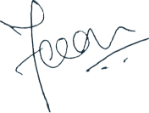The Dire Need For Precision Learning

Most leadership development training programs have followed a broadcast model with experts sharing their insights and the learner mostly consuming information. So, what is the future of learning in a virtual world? The training industry in 2019 was estimated to be around 370 billion dollars and leadership alone was a 50-billion-dollar industry. With absolutely no evidence that these leadership programs produced any results, we are at the cusp of a reset, driven by a ‘Digital Only’ world forced by a pandemic.
The lack of evidence-based outcome in learning is all pervasive. We hold conferences, workshops, training programs (all virtually now) where we collect feedback about the event, speakers, course content etc. and never get to know whether the learner has made any progress. Even when we collect feedback on the learner, it is anecdotal evidence and not precise data. We are unable to locate learners with respect to their knowledge, skills, and mindsets, and therefore have not developed human-centered learning systems. This has been the most important reason for the failure of learning across all spheres. Being able to locate the learner with high precision could be the holy grail in the learning space, especially in the virtual world.
Today, learning is the single most important activity for every professional. If a person is unable to learn, re-learn and unlearn on a regular basis, they could become irrelevant very quickly. We need to provide the learner with a GPS instead of an atlas to navigate the learning process with constant feedback. If we are able to bring simplicity to the learning process and everyone reaches their learning destination every time, we can make the learner fall in love with learning all over again. While curiosity is the key to learning, most learners today are flying blind, making the process of learning an anxious one. If we are able to measure the exact location of the learner, we would be able to personalize the interventions. And that is the core idea of Precision Learning.
Precisely locating the learner goes beyond pinpointing their knowledge and skills, to knowing their mindset or disposition, and understanding their community role. For example, a learner’s grit, perseverance, self-confidence and motivation may have a lot to do with leadership. Similarly, a learner’s citizenship, and reputation based on their social interactions are aspects that can be used to personalize their learning pathways with social interactions rather than learning with fixed content. Further, learners’ knowledge, skills, and mindsets are dynamic and continuously evolve, which makes representing the location of the learner in real-time challenging.
Learning outcomes can be assured only if we have a closed-loop — from research to practice. Practices are based on principles from cognitive science, neuroscience or psychology. The learning data stream that improves the precision of locating the learner should also inform the research that enhances the science of learning to better serve the learner.
Learning at a Silicon Valley corporation by its engineers is very different from primary school learning in rural India in the local language. The complexity of learning is further aggravated by the extreme diversity of learners, and intricacies of learning ecologies. The pandemic further demands that we be learner-centric by giving them the flexibility on where and how they learn: at office/school/home, with instructors/teachers or mentors/parents. The solution must emerge in a way that is most appropriate in the local context.
The word ‘precision’ has become a synonym for the application of data to the analysis and treatment of a wide range of phenomena. ‘Precision medicine’ describes the use of detailed patient information to individualize treatment and prevention based on genes, environment and lifestyle. The core idea is to keep the patient at the centre and make all his data available to the doctors and nurses so that they are able to determine the specific medicine for the patient. Similarly, ‘precision agriculture’ has become an entire field of R&D in the farming sector.
One of the front runners that is transforming this industry is the non-profit Gooru. Founded by Prasad Ram, a former Google employee who was involved in developing Google Maps, it is no surprise that his core insight led him to build something on similar lines for learning. The power behind the tool is that it is an integrated research-to-practice platform that can be used in any industry and personalized for any learner for any skill – whether it is carpentry or coding. Every discipline can be mapped as a progress of competencies. This brings a GPS-like experience for the learner and provides all stakeholders real time data about the progress made by the learner.
The SAP Academy for Engineering became the first corporate to pilot the Gooru tool to identify the position of every learner accurately. We believe that this success can be scaled not just across all employees in SAP but across disciplines, geographies and learner abilities — not by replication but by emergence, to enable lifelong learning worldwide.
We may just have found the keys to unlock the potential of every human being!

